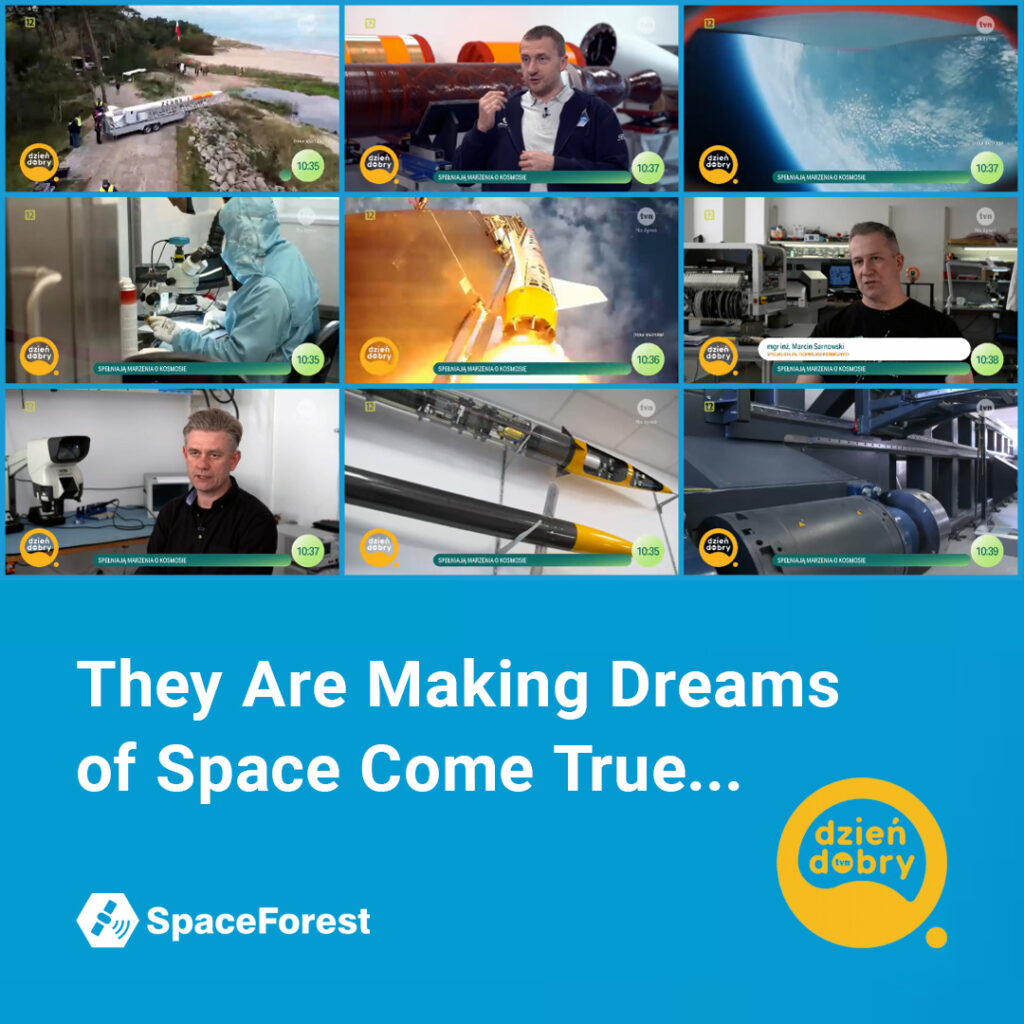They Are Making Space Dreams Come True: “So That It Can Be Accessible to Ordinary People”
Once, rocket flights into space were beyond anyone’s dreams. Today, they are becoming increasingly common and, more importantly, bring many benefits. This is all thanks to ever-advancing technologies and specialized engineers. With the cameras of Dzień Dobry TVN, we visit one of the companies in Gdynia involved in, among other things, rocket production to see what it looks like in reality.

The video material and article in Polish can be viewed at this link (Click or Tap): https://dziendobry.tvn.pl/styl-zycia/technologia/spelniaja-marzenia-o-kosmosie-zeby-to-bylo-dostepne-rowniez-dla-zwyklych-ludzi-st8178979
Dreams of Space
“We are a team of enthusiasts, people connected to the space sector. Basically from the very beginning, which is now 20 years,” says Dr. Adam Matusiewicz, a rocket engineer.
“A team full of passion was brought together around the rocket, around a childhood dream of space travel,” adds Krzysztof Osiak, a specialist in the commercialization of space technologies.
One of the most important products is the Perun rocket, which was developed through the SIR project. SIR stands for Suborbital Inexpensive Rocket.
“A suborbital rocket is a space rocket that doesn’t place payloads into orbit, meaning it doesn’t carry satellites, but it does fly into space and returns to Earth”, explains Dr. Adam Matusiewicz.
“The total length is nearly 12 meters, with a diameter of just under half a meter. It’s the largest rocket built in Poland so far”, emphasizes the specialist.
Space Projects – For Whom?
SIR concluded with two Perun flights. “Not fully successful flights. We had engine issues both times, but those were essentially the only problems we encountered, which gives us more than just hope that PERUN will be an operational rocket capable of flying into space,” the engineer highlights.
“At first, we are planning for a payload weighing 50 kg. These will primarily be research and scientific objectives, as well as testing new technologies, including space technologies. But this is also an area for various marketing activities because we can launch any object or keepsake, which would gain additional value”, explains Krzysztof Osiak.
“I can easily imagine someone wanting a wedding ring that has been to space because I’d love to have something like that myself. Mine hasn’t been to space yet, but it’s something we are thinking about. The average person doesn’t even consider that they could send something into space, and we’d like to change that and make it accessible to regular people”, assures Dr. Adam Matusiewicz.
“We’ve been thinking about a suborbital rocket for years, but if it weren’t for European funds, the rocket project would have dragged on. How long would it have taken? Many times longer, for sure,” he claims.
“In general, we revolve around rocket technologies and also try to expand outward. One of those projects is the SALTO project. It involves creating a reusable, recoverable, orbital rocket in Europe, with several countries, including us, working on it,” notes MSc Eng. Marcin Sarnowski, a specialist in space technologies.
“These projects that we managed to complete were certainly aided by European funds,” admits Krzysztof Osiak. It’s worth remembering that Poland has been in the European Union for 20 years.
“Poland is beginning to be recognized as a notable player in the space industry. We certainly have nothing to be ashamed of in terms of our competencies. We can be proud of Polish engineers, their commitment, and the fact that they are not afraid to pursue their dreams,” concludes the specialist.

Reporter: Anna Grzymkowska
Main image source: Dzień Dobry TVN